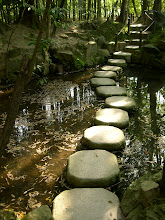 In an August 20, 2008 article the Mainichi Daily News reported that the convenience store chain Family Mart with begin building around 1,000 stores using wood materials. The logic is explained in the article:
In an August 20, 2008 article the Mainichi Daily News reported that the convenience store chain Family Mart with begin building around 1,000 stores using wood materials. The logic is explained in the article:Wooden structures can cut down CO2 emissions in the process of construction from 81 tons to 33 tons per store compared to steel-framed stores.Not sure where those numbers come from, but I'm skeptical of how one can trace CO2 emissions through the process of materials construction. Plus, 1,000 stores is a fraction of the new stores built by Family Mart each year (see the graph below, taken from Family Mart's website)
 Of course none of these very VOCAL moves on the part of corporations towards being "eco-friendly" seem to be very sincere. Actually, they may be sincere, but only if the "eco" in "eco-friendly" is taken to mean "economically", rather than "ecologically". For example, later the article reads:
Of course none of these very VOCAL moves on the part of corporations towards being "eco-friendly" seem to be very sincere. Actually, they may be sincere, but only if the "eco" in "eco-friendly" is taken to mean "economically", rather than "ecologically". For example, later the article reads: The chain also estimates that it can reduce its construction expenses by over 3 billion yen as it costs about 12 million yen to build a wooden store, compared to about 15 million yen for a steel-framed store that could cost more in the future due to a rise in material prices.Moreover, I wonder where the wood is coming from. . .probably not Japan; domestic wood is definately not "eco-friendly" (economically friendly that is). And, though foreign wood is economically friendly, it is most definately NOT ecologically friendly. No amount of "eco-friendly" convenience stores can overcome the damage of heavy deforestation abroad.
But, I will remain hopeful that Family Mart (and other chains) will make me eat my words.






No comments:
Post a Comment